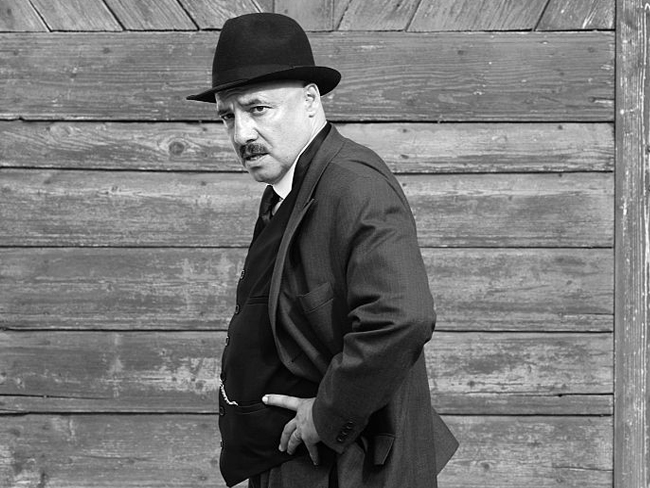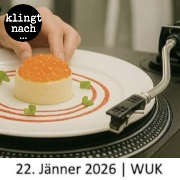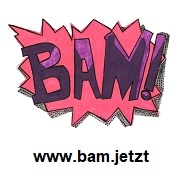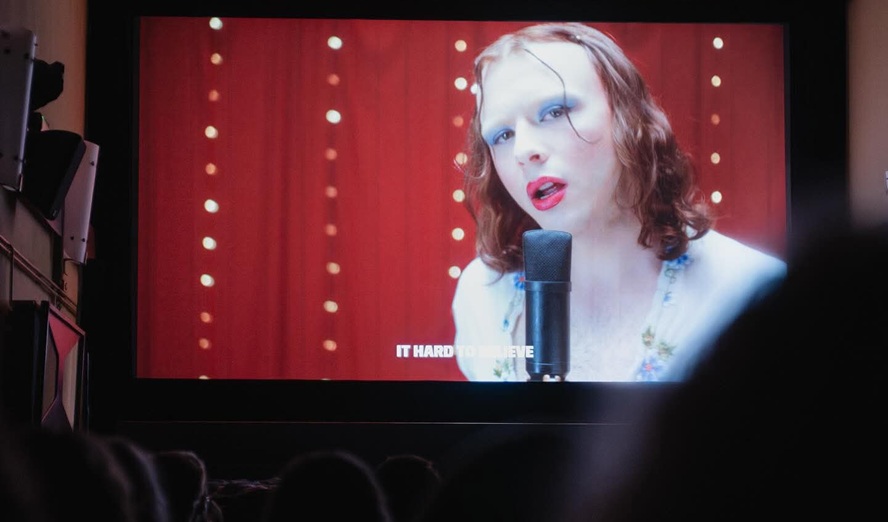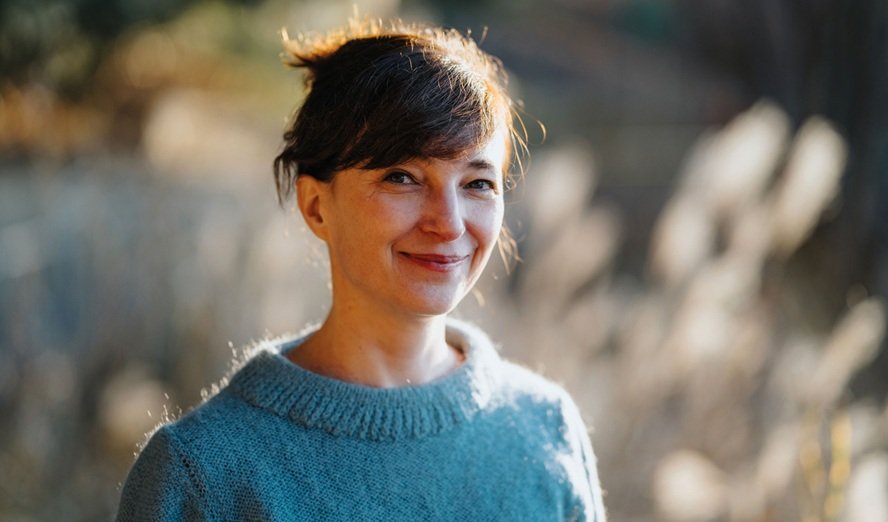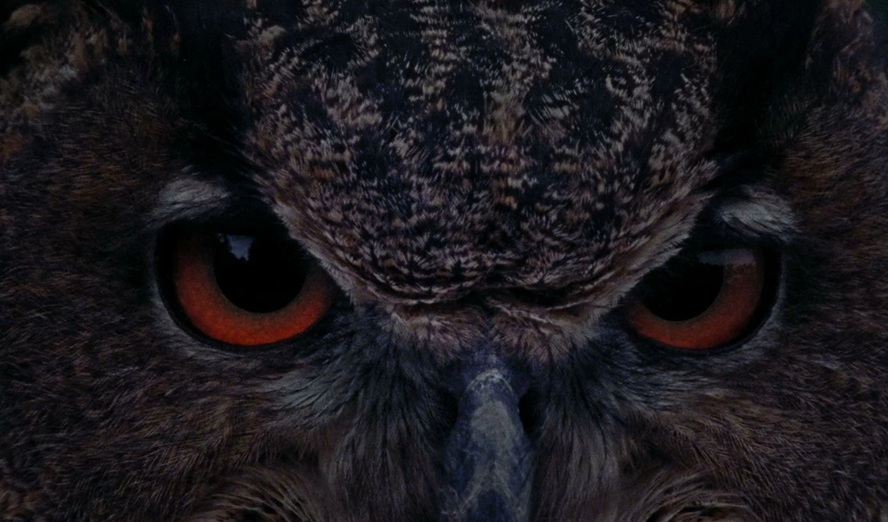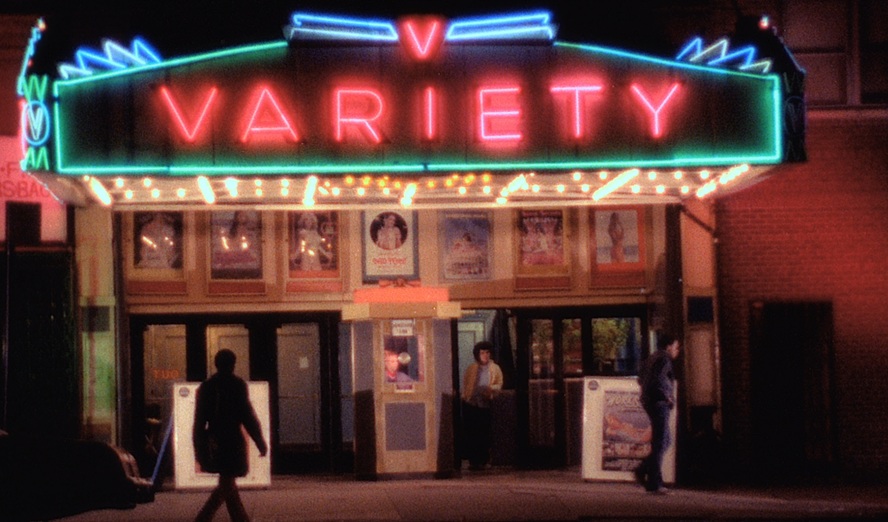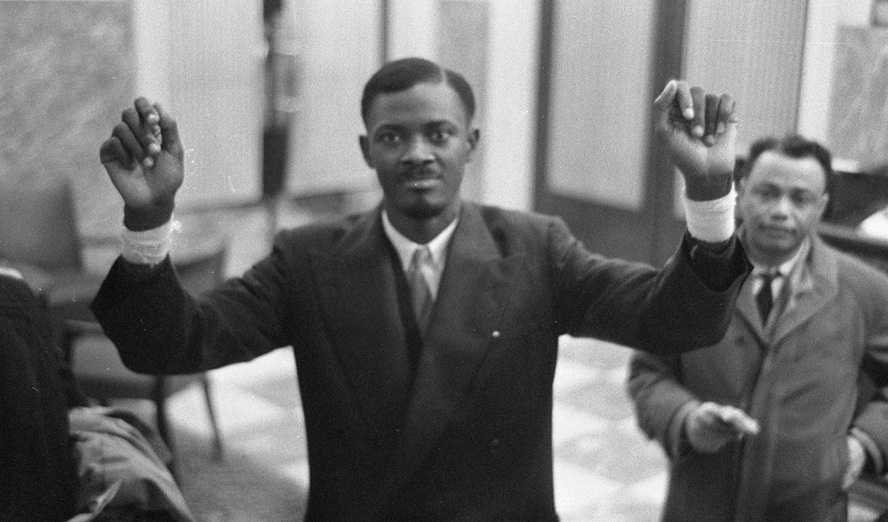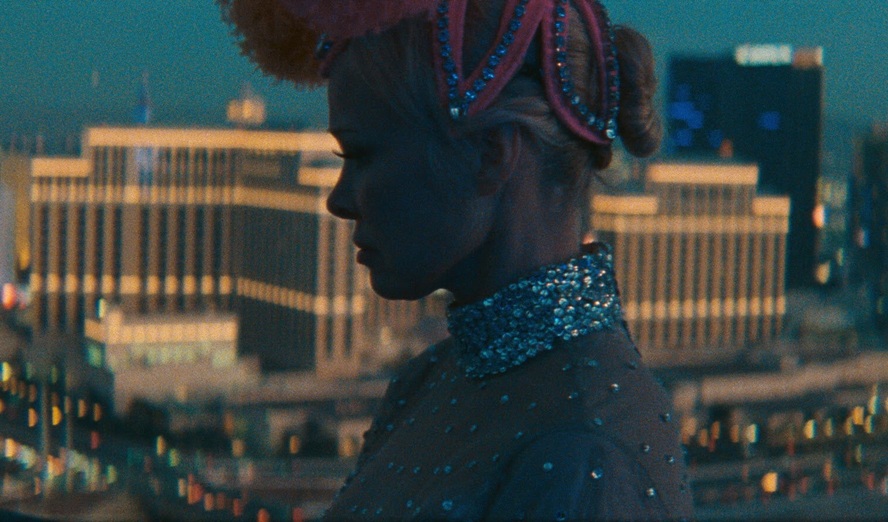Director Ferenc Török’s film »1945« takes the viewer to a Hungarian village in the summer of 1945. As the film begins, the townspeople are preparing for the wedding of Arpad and Kisrózsi. Arpad is the son of the rich town clerk István, who is trying desperately to keep the town under his command as the new Soviet rule approaches. Suddenly two strangers arrive at the station, an old orthodox Jew and his son. The villagers are unsettled and start speculating about the reason for their visit. skug talked with Ferenc Török about the different points of view in his film and about the fascinating fact that old master cinematographers may become godlike.
skug: First of all, congratulations on your film. I’ve heard it took 12 years to develop it and I think it is quite an achievement. In your view, what kind of storytelling is the film 1945? Is it fair to describe it as a parable, because of the heavy symbolism in the film?
Ferenc Török: In my opinion it is rather a drama…An antique drama, built like a theatre play, with the classical unities of time and place. For example, the whole film is about events that take place within three hours. And it is also like a thriller, because the suspense is very important. There is a secret in the beginning. Also, there are certain elements of a classic western, like in »High Noon«: The three hours in a village, the train station, the heat of summer, black hats and so on. So there is a mix of genres, but basically it’s an antique drama.
Of course, there are important elements like in a parable, but we didn’t call them symbols, we used the word icons, iconic pictures. There are some symbolic elements but it is not a symbolic movie – I think. The shop, for example, is a symbol for the past, peaceful times and capitalism.
Sure, the film makes it clear: Almost all of the characters are occupied with goods, the value of goods and especially the wealth of the shop and at the end of the film, everything goes up in flames.
(laughs): Yes, it burns. That’s the end of the world.
I really enjoyed the western style of the film. The avengers arrive at the station with the steamer train and they are wearing those dark hats; They don’t talk. The cinematography is focused on the small details like the oil lamp under the cart. This reminded me a little bit of »Once Upon A Time In The West«.
Yes.
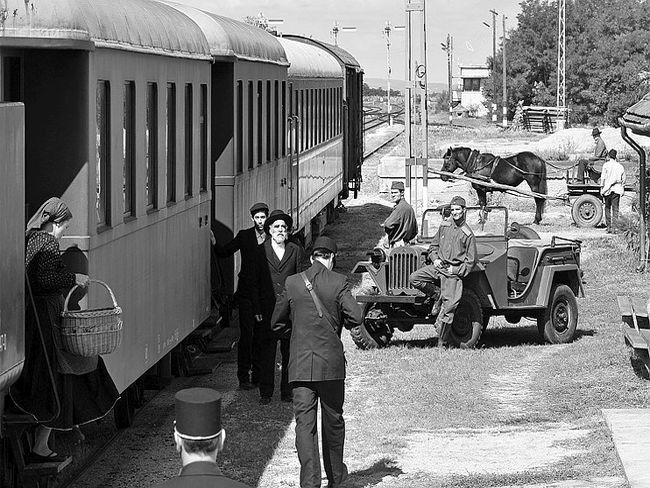
During the film the suspense builds with the idea of revenge, and then there is this beautiful contrast: The visitors are not there for revenge at all. But we are not going to tell you what their aim is … yet.
No, that would be a spoiler. You’re right, this is the basic idea of the script. It’s not a real secret but the parallel development is important. The two orthodox Jews are in an absolutely different logic. They have different feelings than the rest of the village. After the camps, they are not broken. They start again and they still believe in God. This is very important. They don’t say that after the holocaust, we forget about God. They are proud. But the people in the village are fundamentally different. The Hungarian society is thinking of the past and they are afraid of the Jews, because they can imagine nothing else but revenge. They took the houses, the properties of the Jewish and now they are afraid. So the gossip is starting. The fake gossip starts, which is the product of paranoia. It’s a stupid paranoia!
The Jews are able to stick to their tradition, they say the mournerʼs kaddish and the Hungarians want to have a traditional wedding, but it is impossible.
Yes, their ability is gone. (laughs) Yes, it would be a symbolic wedding, because after the war it would be the first event of a new beginning. Like in the Polish movie of Andrzej Wajda, in which the wedding is a symbolic statement. The »society in August« enjoys the fresh baked bread, the grapes and so on. But they can’t do it. We have to be careful now, we are getting close to a spoiler again.
The film gives a new perspective. The whole idea of the »ill-gotten gains« and restitution seems to be very important in the film, which is quite rare. Normally films about the Shoah concentrate on murder. But the theft was very important for the people of that time. The first popular idea (if one wants to call it that) was not to murder the Jews, but to take their belongings. For example, in 1938 when the people in Vienna realized that the Jewish had lost their rights as citizens they started robbing them. What were your specific ideas about this and why did you take this approach? Why did you and Gábor T. Szántó take this approach?
The short story »Homecoming« was really similar to the script, although there is no wedding in the short story. Gábor T. Szántó wrote 15 pages. Very concentrated, straight and simple, about a long way, a journey. And no dialogue. It was all about the possibility of a pogrom or the possibility of revenge. The story was already very visual. Great pictures of the trees and the people with the black hats in the sun, which gave me a feeling of suspense and danger. While I read the story I saw the film immediately in black and white. Maybe the war is black and white for me, because of the footage of that time. But it fits very well with the funeral and helped to concentrate on the composition of the drama.
I guess the cinematographer Elemér Ragályi was a big help.
He is close to 80 years old and he is a master craftsman. And he was six years old in 1945, when the story happened and he also lived in a village in that time. The point of view in the film is sometimes the one of a small boy. We used long lenses, like a child watching the scene from another room.
But let’s get back to this specific approach of the film. The main character, the town clerk István, is occupied with the money, the stolen goods, the land and the houses.
Yes, of course. István’s is concerned about the money, but also about his paranoia, his jealousy. It’s all about small and ordinary things. Of course, greed is his main feeling.
Strangely the film seems to be quite optimistic. Mostly the people in this Hungarian village do the right thing, at least in the end. Obviously, the town clerk István, the clergymen and the policemen do not (but what do you expect from clergymen and policemen?). On the other hand, the drunkard Bandi, István’s son, Arpad and his mother Anna, Suba and his helper, they all seem to repent. Some of them »are not strong enough to leave or change anything, but they don’t support the wrong doings anymore and somehow disengage themselves from the rotten world of István.
I think so, too. It’s true, there is something optimistic in the film. Look, for seventy years we stayed out of war. It was not a nice time during the communism and (laughs) the capitalism today is also bad. But it is not war. We are not killing each other. We were able to build Israel for example. Things happened. We were able to build something and we stayed alive. So there are good reasons for optimism and we should be optimistic. Hungary today is far away from being a paradise, but we accept each other and we work together. This is quite an achievement after a mad dictator killed millions of people in Europe, isn’t it? In the film at least Arpad is able to start a new life.
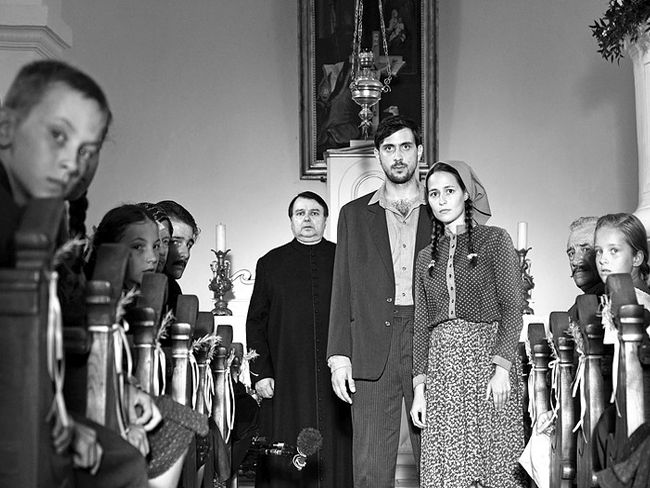
Obviously, the film is about a time of transition. The old order is gone and the new hasn’t arrived yet. Things that were lawful yesterday are a crime today. In my opinion, the film gives an interesting insight into how people react to this kind of transition. In the beginning, the main character István is listening to the news about the A-bomb and he doesn’t seem to care, but later on he is annoyed when he hears about new Soviet rules on the radio. Rules which may affect his business are the bigger catastrophe than the possible end of the world.
Of course. We built up parallel realities. The big things that make history, like Hiroshima and the Holocaust are represented in history books. But the normal day with all the small details, with its weddings and funerals, with love and hate is not. There are different layers also in politics. The world of big politicians is different from the local mafia. In this Hungarian village there is still a feudal system with a small king. The king is using the police and is also controlling the technical facilities, like the train station where he is regulating the delivery of goods. He is also the only one in the village who is able to use a phone. And of course, the religion. A good connection with the church is very important for the local king. On this level many things differ from the big historical developments. But there is big news on the radio: an election is coming and the local king knows that this means trouble. There is something very interesting about this transitional situation in 1945. During the communist period, when I was a child, we learned that 1945 is the date of freedom and liberation. The 4th of April meant »Hungary is free«, but only until 1990. Suddenly the date lost this meaning. That’s why we used this number in the title. The number is problematic, it is a question. What does 1945 mean? The history books and google are able to give this date a specific meaning. But what did it actually mean in a small Hungarian village? That’s a different story.
The development of the media plays a certain role in the film. The town clerk switches the radio off in the restaurant because he doesn’t want the people to hear about the developments in the »big world«.
Of course, he doesn’t. He wants to maintain his own rule. It’s a state in the state. The Russians and their election are clearly not good for him, but he will survive. He will become a soft communist, a local staff member. Maybe not in the party, but in the kolkhoz. He is not going to prison for what he has done, he is going to be the head of the kolkhoz. This is really important to understand. The personal lives of the local kings may be affected and they start drinking, but they stay in power. István is an example for the Hungarian survivor. He is like a chameleon, or like a snake that is changing its skin. Everybody from a rural area in Hungary will understand this character. In the US it may be different, but people from Central and Eastern Europe will recognize this type of person.
There is this old problem: If you tell the story of the victims they become victims again. It’s unfair if the victims tell their stories and the perpetrators are silent. On the other hand, if you tell the story of the wrongdoers, they may become »bigger than life«. You look at them in the perspective of a Shakespearean royal drama and the audience starts to sympathize with them. It seems that your and Gábor T. Szántóʼs script is trying to mix both perspectives?
Szántósʼ short story was told from the point of view of the survivors. The film was built up around this. We added Arpad, the son of István, and his wedding. We wanted to look at all of this together and in the same time. So, we needed an omniscient point of view and a god-like perspective. This gave us the chance to build a model of the society. With the parallel montage of the film we were able to show everybody. As I mentioned before, our cinematographer Elemér Ragályi was five years old in 1945. His individual memories are those of a little boy, running after a ball in the background. He remembered and told us these stories, but from a point of view that is 70 years later! He lived through this century and now he is almost God (laughs). Today he can see all the connections. He knows the consequences of certain actions. There is this perspective of God, who knows all of this. And the two orthodox Jews believe in him. The film has a spiritual dimension. It’s is not just about property and theft, but the idea that everything is seen. All of the happenings in the small village can be regarded. There is this different level, not mysterious but a little bit like ghosts and silhouettes that help shape the scene, like in a Bergman movie. Think about the »The Seventh Seal«, where the dead are still part of the scenery.
And the big religious question is always: Who is able to repent?
Some characters in the film are able to do it.
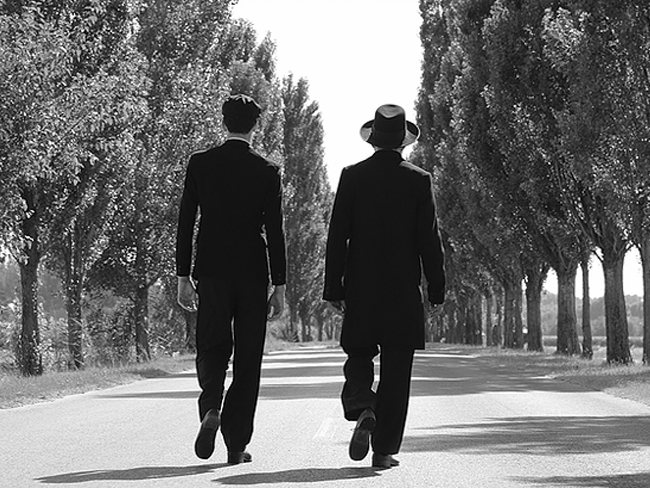
One last question about politics. What’s wrong with Europe?
(laughs): This question is too big! Be more specific.
The Hungarians are the bad guys in Europe these days. Especially in Austria, Hungary is always the example of oppression of artists and free speech, mistreatment of foreigners, Sinti and Romanies. In Austria we consider the country as far from dictatorship. What do you think about this? Is there discussion in Hungary about how Austria is becoming more and more a police state with authoritarian rule, which is the case – by the way. Is there a discussion about Austria in Hungary?
Well, the scandal of the social democratic party is really good news in Hungary. This strange guy from Israel and his misdeeds – puh, congrats! People in Hungary like to hear about that and that you are also not getting a wonderful reputation these days. (laughs) But the political situation and this kind of news are not very important. Apart from some attention for the ongoing campaigns for the elections all over Europe, like the Merkel campaign, the Orbán campaign, the Kurz campaign, people are not really involved with these issues. The difficulties of daily life are much more important. Maybe sometimes we react to parallels and coincidences. I guess people in Austria have a hard time to understand Hungary, because they are rich – compared to Hungary. In a poor or relatively poor country everything is much more difficult. But what about Europe? Which parallels are there?
Everyone seems to be afraid of foreigners these days and wants to build fences.
I don’t know. I don’t feel that. On my street in Budapest we have a Vietnamese shop, a Chinese Restaurant, a Turkish one. In the city we are living together and it is absolutely working. Budapest and Vienna – these are cosmopolitan cities. Because of the tourists many people speak English the whole day in Budapest. This manipulation and the propaganda against migration are fashionable topics in certain think tanks. It’s a strategy to win elections. I really don’t like it. All this identification and identity politics is wrong. Identity is important for us personally. In art it has a meaning, it is significant for me as an artist, but this is a very private and intimate feeling. Politicians are trying to use it. Even if they take identity as something positive it is wrong. They shouldn’t use it, it is something personal.
Thank you very much for this interview.
